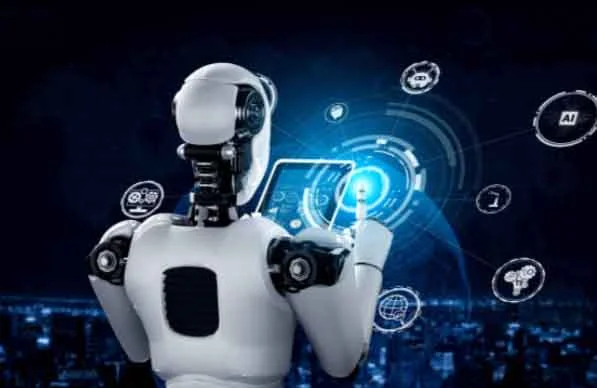Introduction
Artificial Intelligence (AI) is reshaping industries across the globe, and healthcare is no exception. With its potential to streamline operations, improve diagnostics, and enhance patient care, AI is revolutionizing how healthcare services are delivered. In this article, we will explore the role of AI in transforming healthcare and uncover its numerous applications and benefits.
The Power of AI in Diagnostics
One of the key areas where AI is significantly impacting healthcare is in diagnostics. By leveraging advanced algorithms and machine learning, AI-powered diagnostic tools can analyze vast amounts of medical data, including patient records, lab results, and medical images, to detect patterns and anomalies that might go unnoticed by human physicians.
These tools can assist doctors in making accurate and timely diagnoses, leading to more effective treatment plans. For example, AI algorithms can quickly identify potential signs of diseases like cancer on medical imaging tests, enabling early detection and intervention.
The Benefits of AI in Patient Care
AI also plays a crucial role in improving patient care. Chatbots and virtual assistants powered by AI technology can efficiently handle routine patient queries, offer medication reminders, and provide personalized healthcare advice. This not only reduces the burden on healthcare staff but also ensures that patients receive timely and accurate information, even outside regular clinical hours.
Additionally, AI-enabled monitoring devices can track a patient’s vital signs in real-time, allowing healthcare providers to remotely monitor patients and intervene promptly in case of any abnormalities. This remote patient monitoring helps enhance patient comfort and safety, especially for individuals with chronic conditions who require continuous care.
The Future of AI in Healthcare
The potential of AI in healthcare extends beyond diagnostics and patient care. Researchers are exploring AI’s capabilities in drug discovery, genetic analysis, and precision medicine. AI algorithms can quickly analyze vast databases of genetic information, identify gene variations implicated in diseases, and even suggest targeted interventions based on an individual’s genetic profile.
Moreover, AI-powered robots are being developed to perform complex surgeries with unparalleled precision, minimizing the risk of human error and reducing the recovery time for patients. These advancements in AI-driven robotic surgery have the potential to revolutionize surgical procedures and improve patient outcomes.
Conclusion
Artificial Intelligence is transforming the healthcare industry, ushering in new possibilities for improving patient care, diagnostics, and research. From diagnosing diseases accurately to enabling remote patient monitoring and even assisting in drug discovery, AI’s impact on healthcare is profound. As the field continues to advance, healthcare providers and researchers must embrace AI’s potential to deliver enhanced medical services, ultimately improving patient outcomes and revolutionizing healthcare as we know it.

